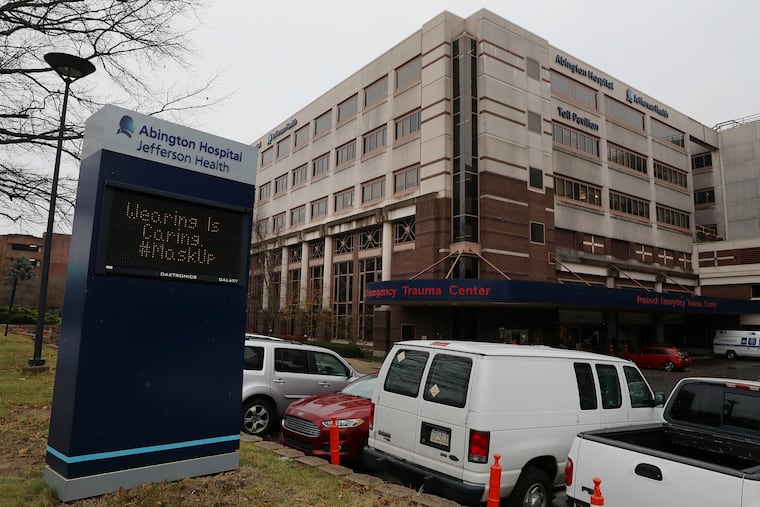Moody’s downgrades Thomas Jefferson University credit rating, citing lower profits and higher debt
The credit-ratings agency highlighted industry-wide higher expenses that will make it hard for Jefferson to rebuild cash reserves.

Moody’s Investors Service recently downgraded the credit rating of Thomas Jefferson University by one notch, citing increased debt and industrywide higher expenses that will make it hard for the nonprofit health system based in Center City to rebuild cash reserves.
The new rating of A3 is still strong. It is Jefferson’s second downgrade since it embarked on a massive expansion from 2015 through 2021 that grew the system from three to 18 hospitals and added another university and a Medicaid insurance company.
Moody’s said it expects new leadership at Jefferson, which last summer hired Joseph G. Cacchione as CEO, to continue focusing on ways to get hospitals and doctors throughout the massive system to work together more efficiently. That could entail reducing duplication of services at different locations.
Cacchione has brought in a new executive, Baligh R. Yehia, as president of Jefferson’s health-care operations. Last month, John P. Mordach joined Jefferson as chief financial officer from Duke University Health System.
Balance sheet considerations
A key factor in the downgrade is that operating margins are expected to remain lower for a longer period than Moody’s previously expected. “We estimate the operating cash flow margin will be 2-4% over the next several years, compared with prior expectations of 5-6%,” Moody’s said.
In its March 30 report, Moody’s cited higher labor costs and constraints on patients entering and leaving the hospital due to longer lengths of stay and the shift from inpatient to outpatient sites of care as drivers of lower profits. Hospitals typically get paid less for outpatient care.
“Jefferson is not immune to the financial challenges facing the entire healthcare industry. We continue to implement strategies to help strengthen our financial position, even in the face of these challenges,” Mordach said in a statement.
Another big factor in the downgrade was Jefferson’s relatively high debt level of $3.4 billion, compared to the amount cash its businesses are generating.
That ratio was “a very high 9 times and 11 times in the 18 months ended Dec. 31,” Moody’s said. It is “expected to decline to a still high 6-7 times over the next two fiscal years.”
Its revenue in its most recent fiscal year was $7.9 billion. It employs more than 36,000 on a full-time-equivalent basis.